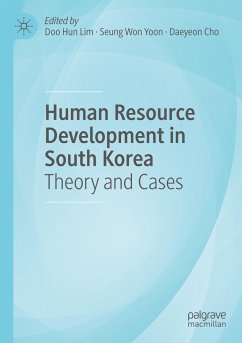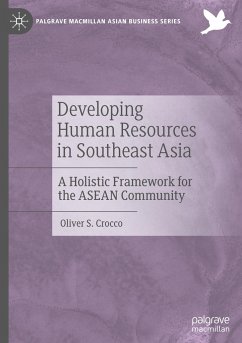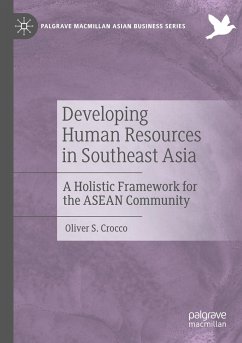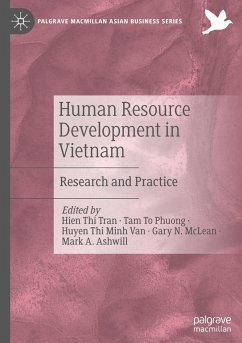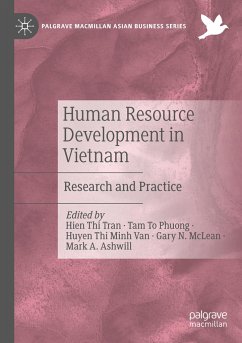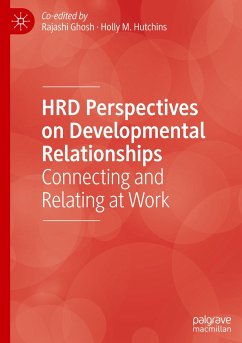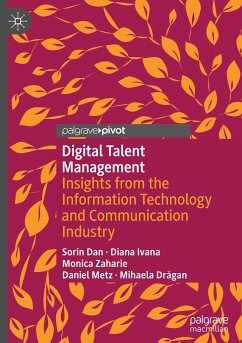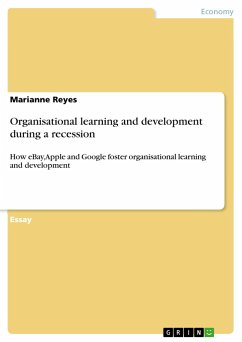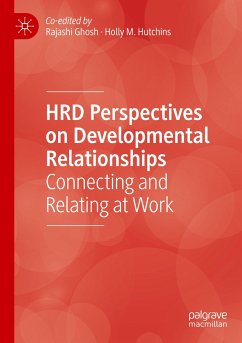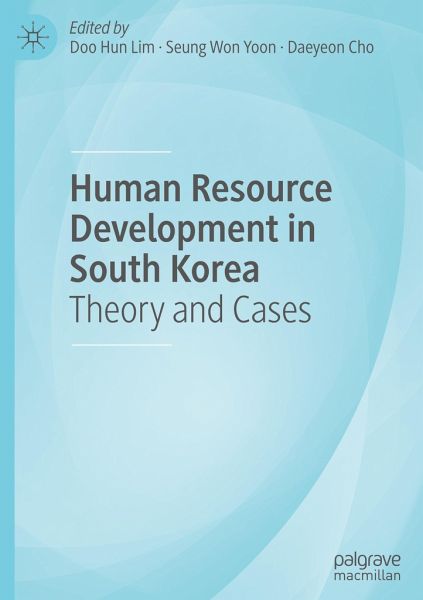
Human Resource Development in South Korea
Theory and Cases
Herausgegeben: Lim, Doo Hun; Yoon, Seung Won; Cho, Daeyeon

PAYBACK Punkte
65 °P sammeln!
Winner of the 2020 R. Wayne Pace HRD Book of the Year Award, this edited book covers major trends, notable distinctions, and the challenges and needs for preparing future HRD activities in South Korea. It consists of three major sections: national and social issues of HRD, sector perspectives on HRD, and contemporary issues and trends. To cover contemporary trends and future issues, authors examine topics in diverse areas, such as the application of data analytics for HRD, action learning trends, and psychological and work climate issues affecting performance. Through theory and cases, this bo...
Winner of the 2020 R. Wayne Pace HRD Book of the Year Award, this edited book covers major trends, notable distinctions, and the challenges and needs for preparing future HRD activities in South Korea. It consists of three major sections: national and social issues of HRD, sector perspectives on HRD, and contemporary issues and trends. To cover contemporary trends and future issues, authors examine topics in diverse areas, such as the application of data analytics for HRD, action learning trends, and psychological and work climate issues affecting performance. Through theory and cases, this book will show how HRD can be successful at the organizational, industrial, and societal levels as well as the future needs required to further advance HRD in the nation.





